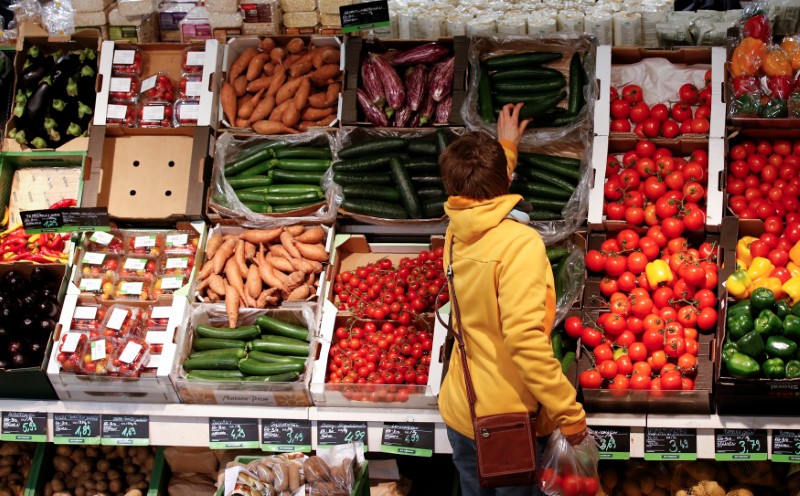Investing.com’s stocks of the week
BERLIN (Reuters) - Inflation in Germany's most populous regions held above the European Central Bank's target rate in August, adding weight to the bank's case for gradually winding down its huge monetary stimulus program.
With price pressures building in the euro zone, the ECB plans to wrap up 2.6 trillion euros ($3.04 trillion) of bond purchases by the end of the year. But it has also said interest rates will remain at record lows through the summer of 2019.
The ECB's inflation target is below but close to 2 percent.
Annual inflation in the most populous state, North Rhine-Westphalia, was unchanged at 2.0 percent from July, preliminary regional statistics office data showed.
In Bavaria, the second-most populous, inflation was also unchanged, at 2.2 percent. In Baden-Wuerttemberg, the third, it fell to 2.1 percent from 2.2 percent.
Inflation fell to 1.7 percent in Hesse and to 2.0 percent in both Brandenburg and Saxony.
The state inflation readings, which are not harmonized to compare with other euro zone countries, feed into nationwide data due at 1200 GMT.
A Reuters poll conducted before the release of the regional data suggested that Germany's harmonized consumer price inflation (HICP) rate would fall to 2.0 percent from 2.1 percent in July.
In Spain, Europe's fourth-biggest economy, inflation fell to 2.2 percent in August..
The euro zone will publish preliminary August data on Friday, expected to remain unchanged at 2.1 percent, according to a Reuters poll.
($1 = 0.8551 euros)
